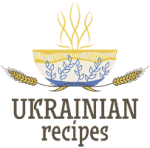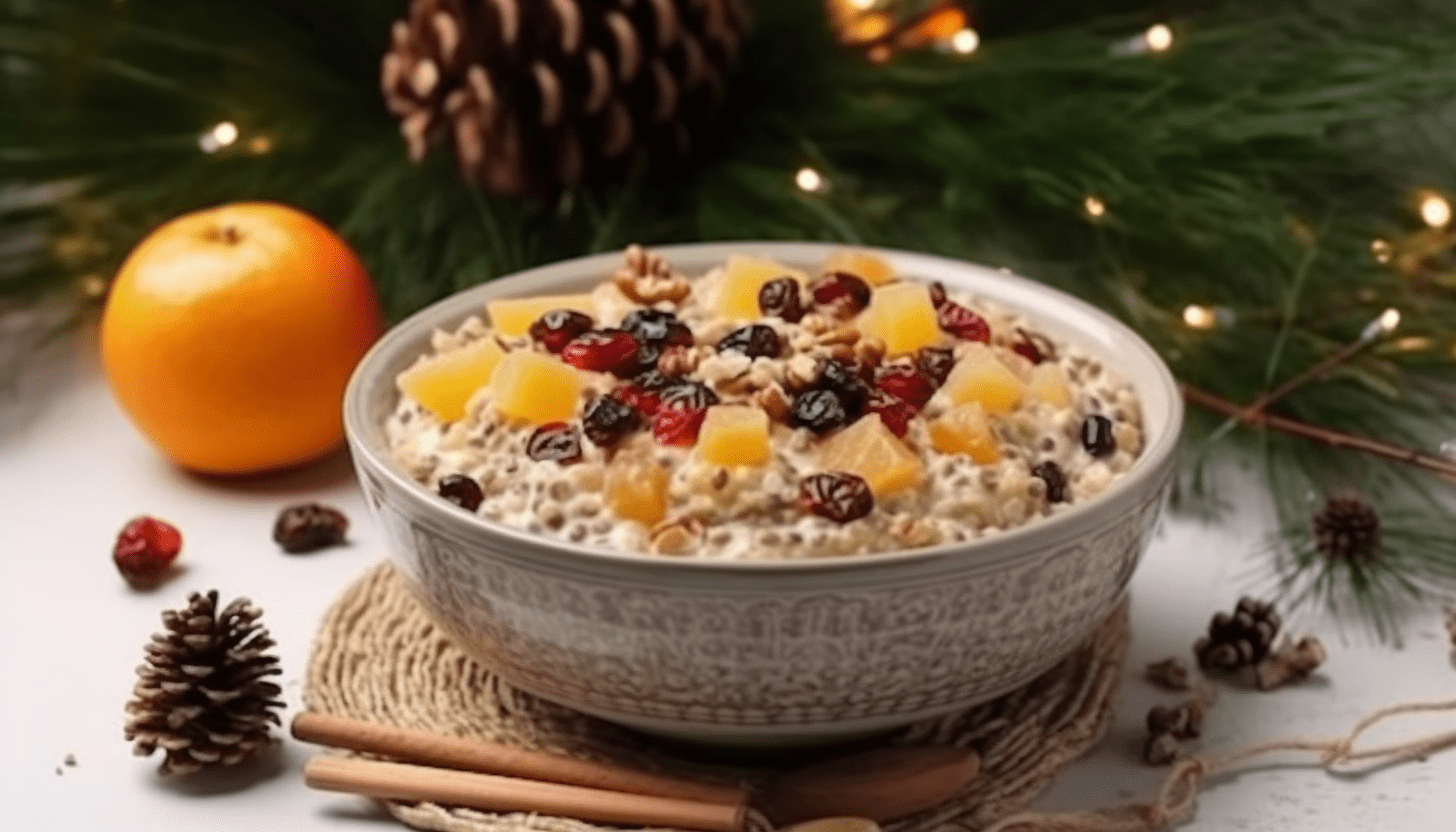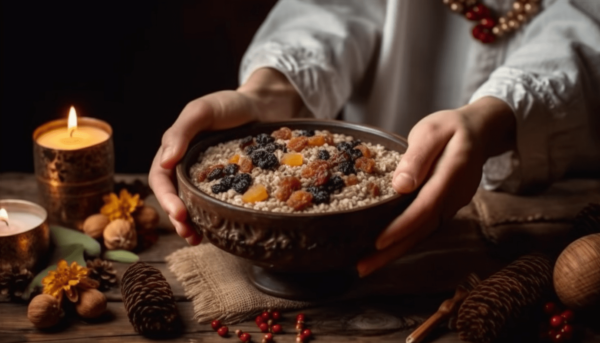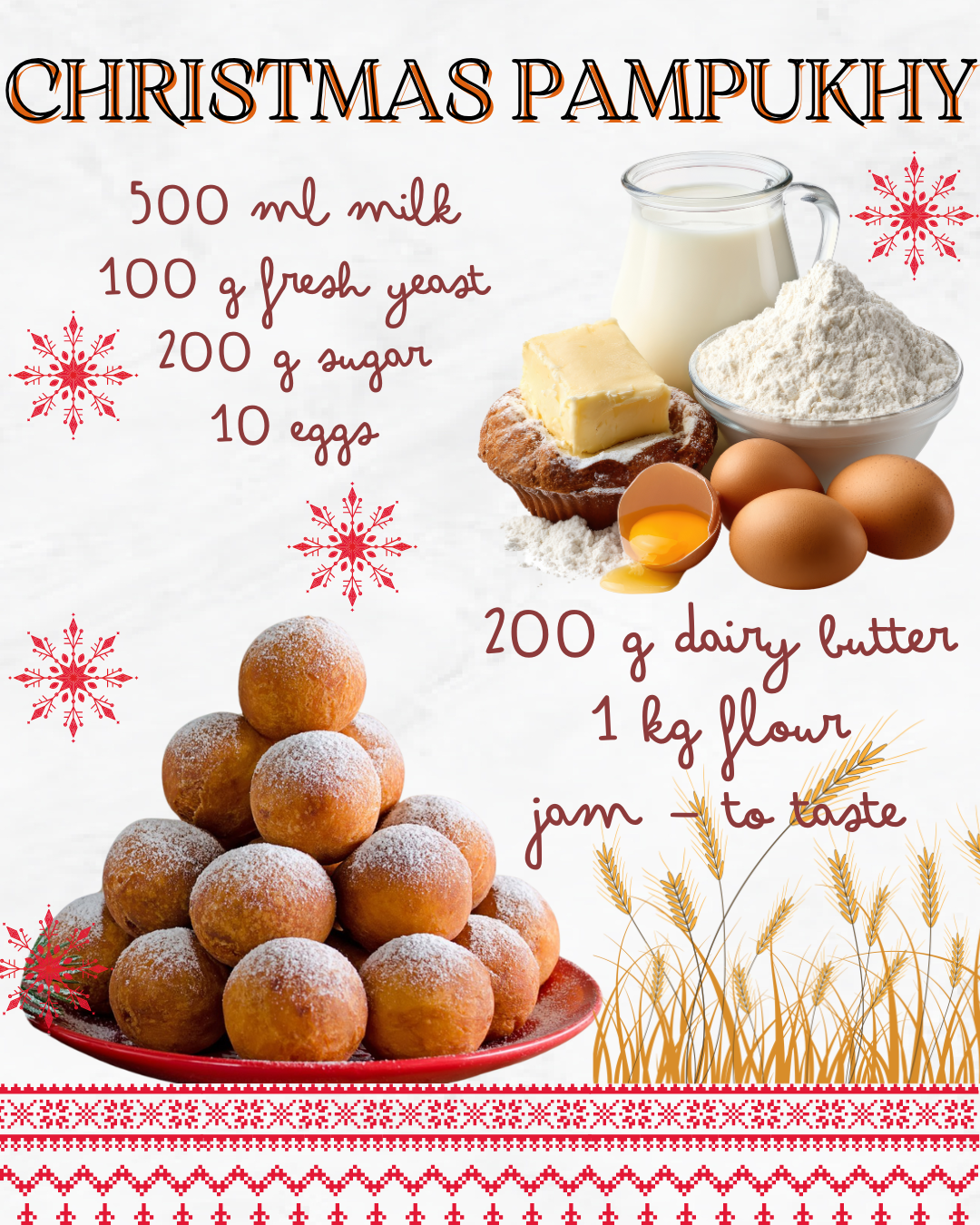Ukrainians always prepare very seriously for Christmas. Among thousands of household and personal matters, the most critical celebration component is a family feast because Christmas Eve gathers the whole family around a common table, even if family members have to travel great distances. Consequently, preparing for the Christmas feast demands considerable time and effort.
The Christmas celebration is always worth the effort! Among the vast number of delectable and unique Ukrainian dishes, kutya holds a special place as the most important culinary element of the Christmas festivity. Delve deeper into the historical and cultural significance of kutia in Ukrainian traditions.
What is kutya for Christmas?
Kutya is the most important dish on the Christmas table of Orthodox Ukrainians. IKutya signifies a symbolic offering to God, inaugurating the festive dinner. Numerous customs and traditions are directly intertwined with its preparation. The dish’s main ingredients are boiled wheat blended with honey and poppy seeds. By the way, each component of this dish has its special meaning.
The term “kutya” originates in ancient Greek, translating to “boiled grain.” Known by various names like kolyvo, sochyvo, kanun, and sit, kutya was initially prepared to honor the dead. Even today, a distinct variation of the dish known as black kutya is prepared for a wake, with other versions such as rich kutya (holodna kutya) on Christmas Eve, generous kutya (shchedra kutya) on Bountiful Eve, and hungry Kutya (on the eve of Epiphany).
This ancient dish’s origins are believed to be traced back to Neolithic times, characterized by the boiling of wheat and dried vegetables. Nowadays, kutia is available in city markets, general stores, and supermarkets. What’s more, all the necessary ingredients for quick preparation of this traditional dish at home are on sale, as well as completely ready-to-use kutia with additives for any taste. That is why it is so easy to follow ancient traditions even in modern times.
The origin of the Christmas kutya
According to one version, kolyvo (and later Christmas kutya) commenced in Kyivan Rus with the advent of Christianity. It served as a commemorative dish offered to departed souls. According to another version, this custom has more ancient roots and dates back to pagan history, when the preparation of kuti was associated with the cult of ancestors, those who have already died. According to an ancient tradition, the deceased ancestors are responsible for the harvest and the well-being of living relatives. Therefore, it is worth paying respect to them even after death, and the memorial kutya is a kind of ritual of honoring.
Thus, kutya has several meanings. If you look at it from the point of view of Christianity, it is a significant symbol of sacrifice and the union of man with God. And according to archaic, pagan ideas, kutya is identified with fertility, wealth, the continuous cycle of death and life, and therefore, eternal existence.
Returning to Ukrainian Christmas, Ukrainians prepare rich kutya for this holiday. That is, the main task is to prepare the grain base and then enrich it with diverse additives, including honey, poppy seeds, raisins, nuts, etc.
Do you know why rich kutya is prepared for the Christmas and New Year holidays? Ukrainian tradition states: as you commence the year, so shall it continue. Hence, Ukrainians endeavor to include numerous ingredients in kutya, invoking wealth for their future.
Traditions related to kutya
Each ingredient in kutya holds a special significance – grain symbolizes eternal life and wealth, honey signifies heavenly bliss and health, and poppy seeds and nuts represent fertility and abundance. In the past, the richness of kutya predicted a bountiful harvest and increased wealth in the family. In general, nuts, grains, and poppy seeds are all symbols of diversity, which symbolize the continuation of the family. Therefore, adding as many nuts and dried fruits as possible to this dish is always appropriate so that the kutya is hearty and nutritious.
The Christmas Eve dinner traditionally starts with kutya and ends with kutya, honoring deceased ancestors. Every family member, including pets and domestic animals, tastes this dish, which is believed to ward off illness and promote future offspring.
In conclusion, Christmas kutya is an ancient Ukrainian dish steeped in history and revered traditions. Be sure to prepare a Christmas kutia if you plan to celebrate Christmas in Ukrainian style!
What’s more, we have many more exciting recipes for kutia.







